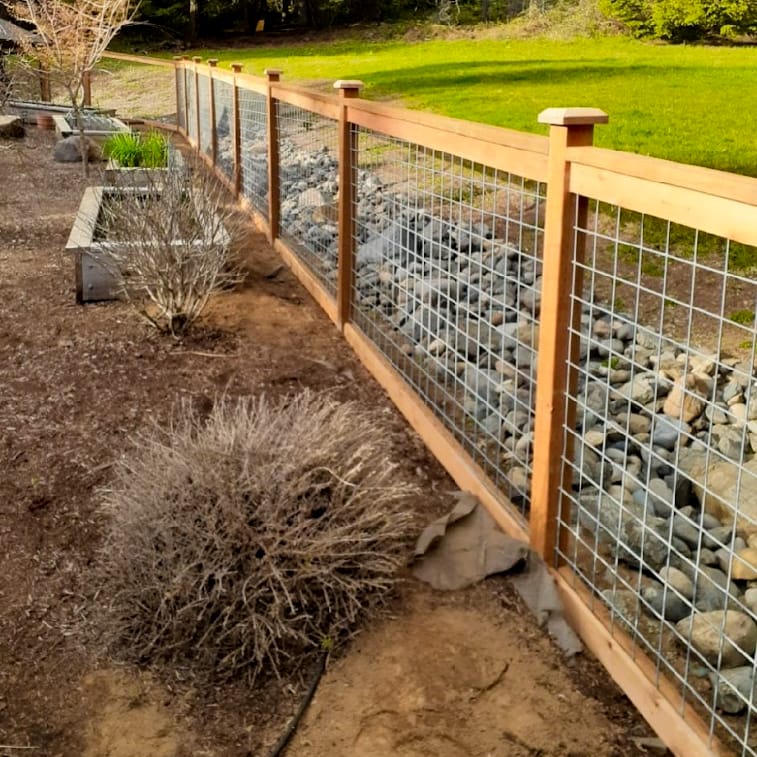All Categories
Featured

Picking the ideal fence product is vital for accomplishing the equilibrium of longevity, looks, and capability that fits your building. Timber, vinyl, and aluminum are preferred options, each with special attributes that satisfy specific requirements. Right here's a comprehensive check out the advantages and negative aspects of these three materials.
Timber Fence. Pros:. Ageless Appeal: Wood supplies an all-natural, timeless appearance that complements various building styles. Adjustable: It can be painted or stained in a variety of colors and designs. Economical: Wood fencings are typically more affordable upfront than vinyl or aluminum. Eco-Friendly: As a renewable source, timber is sustainable and eco-friendly when sourced responsibly. Disadvantages:. Maintenance-Intensive: Needs routine staining, painting, or sealing to secure against weather condition and pests. Shorter Life-span: Relying on the type of wood and environment, it normally lasts 10-15 years. Susceptability to Damages: Prone to decaying, warping, and termite damages without appropriate care. Wood is ideal for property owners who value appearances and want to spend time and initiative in upkeep to prolong its life.
Plastic Fence. Pros:. Durable: Resistant to insects, rot, and climate, vinyl maintains its framework in extreme conditions. Reduced Upkeep: Calls for little upkeep past periodic cleansing. Long Life expectancy: Vinyl can last 20-30 years without significant wear or damages. Versatile Designs: Readily available in numerous colors, structures, and styles, consisting of alternatives that simulate timber. Disadvantages:. Pricey Installation: Plastic fences are a lot more costly to mount contrasted to timber. Brittle in Cold Weather: Vinyl can break in extreme cold environments. Difficult to Repair: If damaged, entire sections might require replacement, which can be challenging to match. Vinyl fencing is a great option for those prioritizing durability and marginal upkeep, even if it comes with a higher upfront price.

Aluminum Fence. Pros:. Rust-Resistant: Aluminum does not rust, making it ideal for wet or damp areas. Strong however light-weight: Offers stamina without being excessively hefty, which streamlines setup. Reduced Maintenance: Needs little greater than cleaning and occasional repainting. Long life: Light weight aluminum fences can last for years without substantial damage. Classy Designs: Commonly used for ornamental functions, light weight aluminum adds class to any type of building. Disadvantages:. High Initial Cost: Aluminum fences are amongst the much more expensive choices. Restricted Personal privacy: Frequently developed with open spaces, they don't block views or noise. Vulnerable to Damages: While sturdy, aluminum can be dented or bent with hefty effect. Aluminum is best matched for those that want a long-lasting, fashionable fence and don't require complete personal privacy.
Making the Right Option. Each product has its staminas and weaknesses:

Wood is excellent for eco-conscious customers and standard aesthetic appeals who do not mind maintenance. Plastic functions for property owners seeking a weather-resistant, low-maintenance service. Light weight aluminum is a long lasting, decorative option for those that want sophistication and long life. Consider your concerns-- whether it's price, appearance, maintenance, or privacy-- and get in touch with a fencing professional to choose the material that finest fulfills your needs. A well-selected fence will certainly improve your property for years ahead.
Latest Posts
Why Chicago Drivers Trust Montclare Auto Repair for Dependable Service and Significant Savings
Published May 26, 25
1 min read
Explore Special Auto Repair Specials in Chicago at Montclare Auto Repair
Published May 25, 25
1 min read
Explore the Leading Auto Repair Discounts in Montclare, Chicago
Published May 24, 25
1 min read
More
Latest Posts
Why Chicago Drivers Trust Montclare Auto Repair for Dependable Service and Significant Savings
Published May 26, 25
1 min read
Explore Special Auto Repair Specials in Chicago at Montclare Auto Repair
Published May 25, 25
1 min read
Explore the Leading Auto Repair Discounts in Montclare, Chicago
Published May 24, 25
1 min read